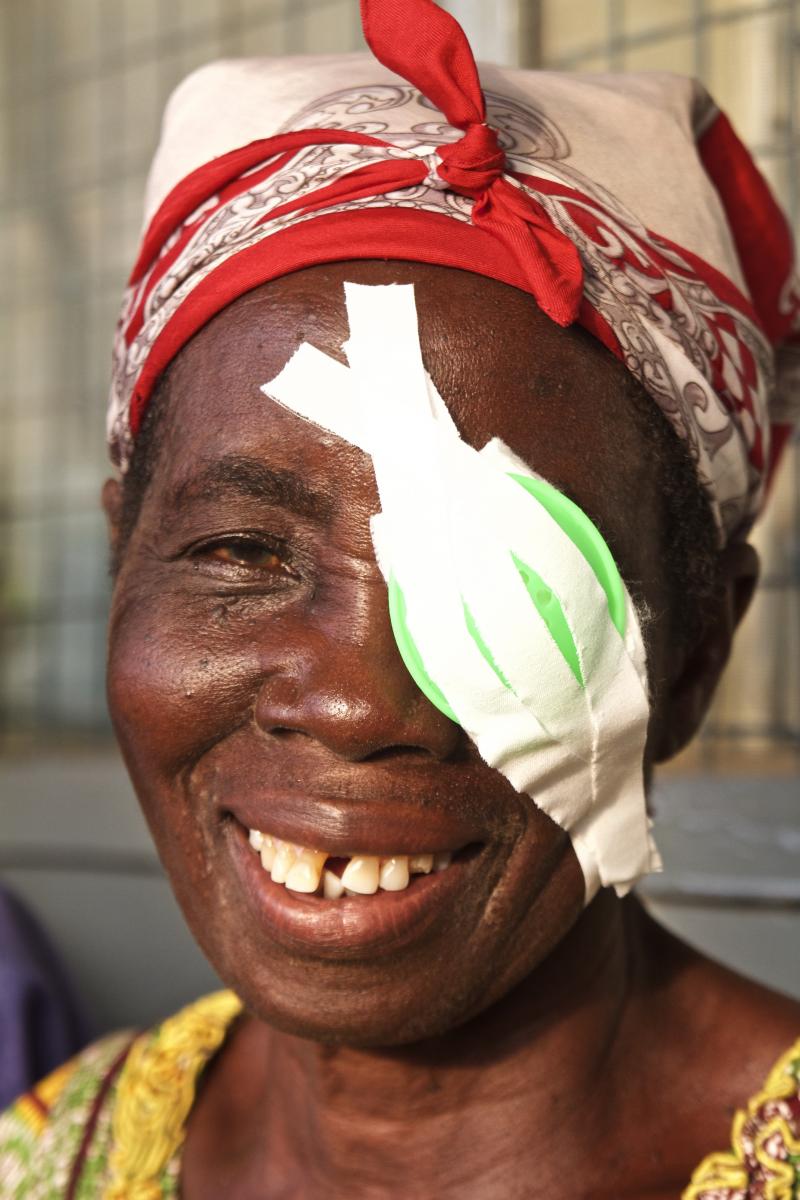Join a powerful, unprecedented alliance for better eye health for all.
Join IAPB-
Choose an alternate language here
For Africa Day, Kashinath Bhoosnurmath, Global Director, Programmes, Operation Eyesight Universal writes about their strategy to provide long-term solutions to eye health problems in the communities they work in.

Our Hospital-Based Community Eye Health Programme (HBCEHP) model is a blend of community eye care, primary health care and community development.
After piloting this flagship model successfully in India, we are now replicating it in Africa, where we’ve been working to restore sight and prevent blindness for decades.
Hospital-Based Community Eye Health Programme
In this model, our partner hospitals develop the capacity to offer quality services, making them available to more patients. The community health workers, who are trained to conduct door-to-door surveys and live nearby the hospitals identify eye health problems and do referrals. Permanent vision centres are also established, while health education increases general health awareness.
Each HBCEHP is designed to provide long-term solutions to local eye health problems, building the capacity of the communities involved and eliminating avoidable blindness on a sustainable basis. Using this approach, to date more than 300 villages in India have been declared avoidable blindness-free. Our goal is to declare 2,020 villages/communities in Asia and Africa avoidable blindness-free by the year 2020.
Our projects in Africa
We’re implementing this model in Zambia with support from Standard Chartered Bank’s Seeing is Believing (SiB) programme. This is a comprehensive four-year plan focusing on three shanty towns in Lusaka. To eliminate avoidable blindness here, we’ve established primary eye care centres as an integral part of existing clinics and are screening the entire population to identify people at risk. We’re also strengthening our partner hospital’s services.
In Ghana, we have recently launched our model in Mfansteman district, where the blindness prevalence rate (1 percent) is higher than the national prevalence rate (0.74 percent). There’s only one eye unit in the district, which is currently understaffed and underutilized. Many people in the surrounding communities are not aware that eye care services are available to them – and those who are aware must travel long distances to seek treatment, which increases their economic burden.
Our goal here is to reduce the prevalence of blindness in the district to 0.30 percent by increasing the eye unit’s capacity and empowering communities to take ownership of their eye health needs.
This will be done by:
The plan is to declare the entire district avoidable blindness-free by the year 2022.
In Kenya, we’ll implement a HBCEHP in Kirinyaga County in partnership with SiB. Roughly 598,000 people live in the county, many of whom cannot afford eye care services from private hospitals, or afford to travel long distances to other counties. Our goal is to declare 150 communities surrounding the hospital as avoidable blindness-free.
We plan to do this by:
We believe we’ve successfully developed a model which is both practical and replicable. With a strong focus on community empowerment, our HBCEHP model eliminates avoidable blindness on a sustainable basis.
For us at Operation Eyesight Universal, Africa Day means much more than celebrating the spirit of independence. It is a reminder that we need to travel several more miles to achieve true independence and make avoidable blindness a part of history. On this day, we reaffirm our commitment to eliminate avoidable blindness – For All The World To See.
Liked it? We have more posts for Africa Day. Here are some: